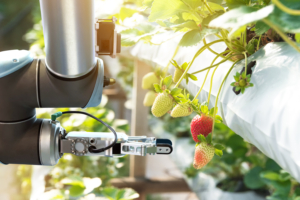Advantages of Big Data AI for Smart Villages
The analysis and use of Big Data is increasingly becoming the focus of public attention. Big Data refers to data volumes that are too large, too complex, too fast-moving or too weakly structured to be analysed using manual and conventional data processing methods.
Unfortunately, the term Big Data is still far too often associated with negative aspects such as fears of a lack of data protection or insufficient regulation. Yet the fashion industry and medical diagnostics have long since shown that these concerns are unfounded. In the fashion industry, exact calculations of the required water consumption can reduce the production of waste many times over, and in medical diagnostics, the analysis of Big Data makes it possible to identify correlations that would not have stood out through human power alone.
Big Data also offers numerous opportunities in the context of Smart Villages. Lack of data protection or insufficient regulation do not play a role here; rather, Big Data is a promise for a higher quality of life in rural areas and offers enormous opportunities in public transport, intelligent energy consumption control, and Smart Farming, among other things.
In rural areas, there is usually no public transport structure with a bus leaving every five minutes. This makes it even more important to have an efficient timetable that is tailored precisely to the needs of the residents. The use of Big Data in public transport makes it possible to analyze the exact movement of people. This makes it possible to determine at what times, how many people are traveling, and how often. Based on this, the timetables can be perfectly adapted to the needs of the people.
Another important point concerns energy consumption control (smart metering) in houses. Big Data also analyzes the consumption of energy, so energy consumption can be optimized, especially when using renewable energy. By installing so-called smart meters, gas, water or electricity meters, can receive data digitally. These send data to a communication network, which is integrated and forwarded to the energy supplier. This should enable better network and resource control, optimally adapted to individual consumption.
Big Data also offers massive advantages in agriculture, in the course of Smart Farming. It is the use of Big Data, that enables the concept of Smart Farming Systems in the first place. It aims to increase the quality and quantity of products, reduce waste and at the same time optimize labour. The driving force behind this is the Internet of Things (IoT), which enables data-driven and data-enabled “smart machines and sensors” and farming processes. With this technology, farmers can collect data, monitor field conditions without physically going to the field, and make strategic decisions. Analysing this mass data enables appropriate crop forecasts, ensures high-quality seeds, and is also a key component of precision farming. In this respect, it is right and important to use and further develop the great potential of Big Data also in the context of Smart Villages.

